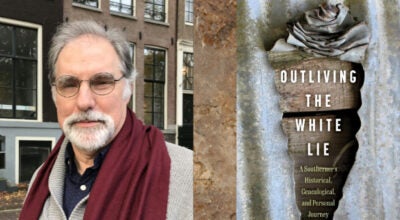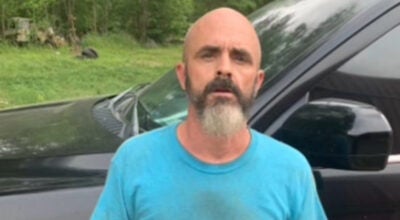State Bond commission tables Vidalia’s Square on Carter project
Published 12:05 am Friday, May 22, 2015
VIDALIA — The Louisiana State Bond Commission tabled Thursday any decision about Vidalia’s proposed Square on Carter project until the city has public hearings about the possible expenditure of royalties from the hydroelectric fund.
Members of the bond commission also expressed strong concerns about allowing a government to purchase property without a private sector partner lined up to invest in it.
The proposal is for the purchase of two separate parcels of land near the western end of Vidalia, 31.67 acres owned by Scroggins Investment Company and 32.72 acres owned by BCHT, LLC. The city would then develop the properties with infrastructure to allow for retail, residential and office development.
The Scroggins acreage was appraised at $741,000, while the BCHT land was appraised at $3,775,000. The properties represent the only significant undeveloped acreage inside the city limits on the western end of town.
The proposal was developed as part of a much larger comprehensive plan for the city’s future development by a third party consultant — represented at the bond commission meeting by Laurence Leyens — following several public hearings in 2014.
When presenting the matter to the commission, Bond Commission Director Lela Folse said the commission’s staff had no recommendation for action, noting that no feasibility study has been completed. Folse said the project would backed by excess revenues including hydroelectric royalties, and the city is not currently in compliance with its ordinance governing those royalties.
Attorney Jason Akers with Foley & Judell, the city’s bonding attorneys, said feasibility studies would be completed with respect to businesses that would be located on the property. Akers said the city intends to follow the hydroelectric ordinance, but additional funds — including a general alimony tax, sanitation service fees, sales tax, utility revenues, wholesale tax and proceeds from tax-incremental financing sales — could also be used.
“The city will have a surplus of $3.8 million this budget year,” Akers said. “If we strip out the hydro royalties, there is still sufficient coverage.”
Hydro fund issue
In response to a statement Copeland made during the meeting about how he’d not gotten a negative phone call about the proposal, State Treasurer John Kennedy said, “Those calls you didn’t get, I got.”
Kennedy said the commission wasn’t informed about the hydroelectric ordinance, and he didn’t know about it until a citizen sent it to him.
“It requires a public hearing where people are invited in and told we are going to discuss rebating money,” Kennedy said.
“I am going to suggest you go back, hold that hearing and let people have their say, and once you have that hearing I will put you back on the agenda. I feel very uncomfortable today.
“If you do this deal, somebody can file suit tomorrow.”
Purchase of land
Rick McGimsey, representing the attorney general’s office, said he was uncomfortable with approving bonds for the purchase of property for resale.
“It seems like we are buying property and then immediately declaring it surplus,” he said.
Lt. Gov. Jay Dardenne said he believes in public-private partnerships but cannot think of a time when a public body asked for permission to take out bonds for the purchase of property without knowing what would locate there.
“It is, in essence, speculating,” he said.
Leyens said no contract was involved with the land yet and the only thing the town council has voted on at this point is for him to do the due diligence to see if it is a viable project.
“The intent was for the city to have the autonomy or authority to issue bonds and provide this public infrastructure in the instance someone is interested,” Leyens said, to which Dardenne replied, “That makes me even less comfortable.”
Leyens said two contractors have looked at the property.
“We couldn’t get an individual developer at one time to take over the entire project. We want to give the city the chance to facilitate allowing it to occur.”
Dardenne voiced a concern governments could go into real estate development if Vidalia was granted the permission to move forward with the project.
Secretary of State Tom Schedler asked to defer the decision for a month so the commission could gather further information, saying he would vote “no” if the vote was forced Thursday.
The commission voted to table the decision until the June 18 bond commission meeting, provided the city has had public hearings to address the hydroelectric fund issue.
Voices of opposition
During the hearing, two Concordia Parish residents — former Secretary of State Al Ater and former Vidalia Alderman Bill Murray — spoke in opposition to the project.
Murray — the son of Sidney A. Murray, the mayor who conceived the hydroelectric plant and whose name it bears — said he was concerned about the use of the royalty funds.
“The money was for the use of the citizens of Vidalia with the rebate of utility bills and development of projects,” Murray said. “I wanted to know how this can be done when the rebate hasn’t been discussed.”
Ater — who said he considers Mayor Hyram Copeland a friend, turning around to say, “at least, I hope we are still friends” — said he thought the project suffered from a number of historical mistakes.
“This is no reference on anybody’s integrity or intentions,” he said. “Sometimes you are around this process so long, we blur the line between what is public and private, the line of what is the role of government.”
The past ownership of the BCHT land is an issue, Ater said.
Vidalia City Engineer Bryant Hammett, Copeland, Mark Taunton and Riverfront Director H.L. Irvin originally formed BCHT in September 2006. Copeland, Taunton and Irvin left the partnership and replaced by Brad Dutruch of Baton Rouge in 2010.
“I don’t suggest anyone has done anything unethical, but I think there has been a real lapse of judgment,” Ater said. “If this is a vital link for the growth and very existence of Vidalia, why would the mayor and city engineer buy it for themselves and why didn’t the city buy it then, and — I might add — at a considerably lower price?”
Any business looking to locate in a city is going to approach the mayor or the city engineer, Ater said.
“I don’t care who you are, you can be as pure as a mother’s love, and you are going to be inclined to say, ‘I have a perfect piece of property for you and I can fix you up,’” he said. “I am not suggesting something has happened. But the public appearance is very real.”
The property has continued to be for sale since it was purchased in 2006, Ater said.
“I am going to suggest to you that then it became the epiphany that it was the salvation for Vidalia — after we have had it for several years and tried to market it — this became the vision for our future,” he said.
Referencing time he spent in the legislator and later in other state office, Ater said he could not remember a time the state gave governments permission to go into competition with the private sector.
“If this was a viable private sector project, the private sector would be here,” he said. “In no time that I was ever here did we say, ‘OK, I trust you.”
The city responds
After the meeting, Concordia Parish Economic Development Director Heather Malone said the city will take the next month to get information for the commission members’ questions and will advertise and hold public hearings to discuss the hydroelectric funds.
During the bond commission hearing, Kennedy said he wanted the hearings to be specifically about the hydroelectric funds.
“You can’t just get everybody together to talk about the future of the city,” he said. “It has to be about the rebate.”
Malone said in a statement on Copeland’s behalf the mayor felt the decision to delay the commission’s vote was best as opposed to forcing it Thursday.
“He wants the residents to expect total transparency from the town on this project,” she said. “This project will create a town center for our residents and will create significant job opportunities as well a unique quality of life for all to enjoy.”





